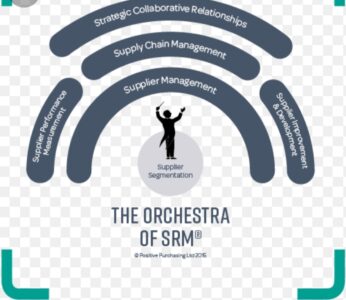Introduction
An organization and its immediate supplier are interdependent and developing a mutually beneficial relation between the two it and enhancing the ability on the part of both adding value.
The two forces, organization and supplier are dependent on each other thus need to have a cordial or win to win relationship. Organization always looks towards adding value towards their suppliers who serve them with the raw material or products which brings them revenue and best customer support and growth.
Organization may have knowledge about the processes taking place at suppliers end which in return helps in optimizing the outcomes. While the organization organizes meetings with its suppliers to enable them understand the requirements and lead towards successful product realization. Many times suppliers are motivated to step towards process improvement through quality management principles.
Significant benefits of mutual relationship between suppliers and quality offered:
• Capacity is fostered adding value to both the organization and the suppliers.
• Mutual relationship helps in bringing much faster and flexible response to dynamic market conditions or customer expectations and needs.
• Optimization of cost and resources.
Thus here comes the concept of Supplier Relationship Management – a management concept most commonly used by procurement and supply chain managers. SRM helps to determine whether the organization supplier contributes or detract from business. The process of SRM aims towards optimizing the efficiency and adding value to the stakeholders. Identifying the suppliers work towards the collaboration of suppliers and buyers significantly. Aligning supplier relationships with the corporate objective to add greater effectiveness to the organisation. Adding key benefits:
• Getting a recognition from supplier
• Supplier providing enhanced quality of services and raw material
• Leading to transparent and unambiguous communication.
Application of principle of mutual supplier relationship
It leads towards :
• Building such relationships that counterbalances short term and long term considerations in terms of gains.
• Catering and pooling of all resources and expertise.
• Identifying and doing selection of key suppliers
• Developing future plans and instills open communication platforms.
• Building joint development and bringing improvement activities
• Recognize and encourage achievements and duty so performed by a supplier.
How can the supplier performance and quality management be improved?
• Identifying and making choice among all and choosing one supplier on the basis of value and approach so undertaken by suppliers while in the supply chain.
• Establishing supplier relationships that bring in both long term and short term advantages for the organisation and ensuring better commitment level to maintain quality among suppliers and organization operations.
• Developing greater levels of transparency and accountability through an open system of communication.
• With the aim to bring best quality to the organization, they need to implement cooperative development and improve products and processes.
• Better understanding of customer needs by the organisation would enable a supplier to comprehend the requirements and deliver best services.
• Both suppliers and organizations working together on a platform need to comprehend.
• Maintaining positive relationships with the suppliers to encourage them to strive for innovation in terms of quality offered.
Importance of mutual supplier relationship
It stays fundamental to the success of many industries and organizations like the automotive manufacturing industry maintaining a stringent set of tools and guiding principles dictating their prospect to the suppliers. Even the food and other retail industries also largely depend upon their solid supply chain. There exists a number of suppliers providing goods and services so it depends upon our decision which one to go ahead with as it not only adds growth but the initial success to large and medium enterprises.
Benefits of mutual supplier relationship
Cutting down of cost- there is some significant cost associated with setting deals with the new suppliers, but supplier relationship management can reduce the cost up to some extent. A company can move ahead saving cost by establishing a mutually beneficial relationship with suppliers. A mutual relation would also reduce availability and delay problems and significant quality issues, rendering better services to the customers.
High efficiency– establishing supplier relationships enhances communication which in turn enables suppliers to understand business requirements and meet them effectively. And even delays would cause interruption in operations and delays in solving customers ‘ grievances.
Reducing price volatility- the most important factor by which consumers get affected is rise in prices which can be due to the direct rise in commodity pricing. By adopting the principle of supplier relationship management companies can take the benefit of fixed pricing and minimum order levels and on the basis of other criteria. Clear cost base would enable a firm to structure its own pricing strategy leading to loyal customers.
Combining the supply chain– a consolidated supply chain may enable a business firm or a customer to reduce the count of suppliers they make purchases from thus streamlining the purchase process and leading to operational advantages.
Leading continual enhancement in operations- an established long term relationship between suppliers and the organization enables free uninterrupted flow of feedback and ideas. The combination of product development and inventory control process can deliver a range of financial and operation advantages to both the parties.
Challenges faced in the development of mutual supplier relationship
• Lack of transparency- if the correct information is not proceeded forward among the parties then it can lead towards missing opportunities and misunderstanding about business needs.
• Preferable ways of communication- collaborative relationship between the two parties isn’t always easy to create. So for effective relationships one needs to maintain a balance with respect to working relationships.
• Misaligned business cultures- due to the different cultures followed by the parties it may arise to conflicts and thus both the parties must look for their prospective environment match in the market to perform effectively and efficiently.
Conclusion– Mutual supplier relationship helps in bringing continuous improvement on specific issues of quality and processes which would enable a firm to run its operations smoothly and satisfying customer needs and requirements successfully.



